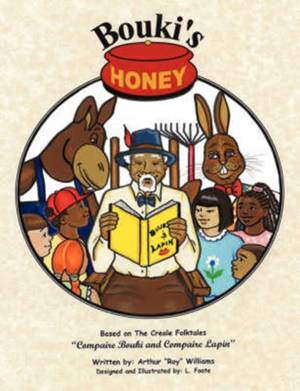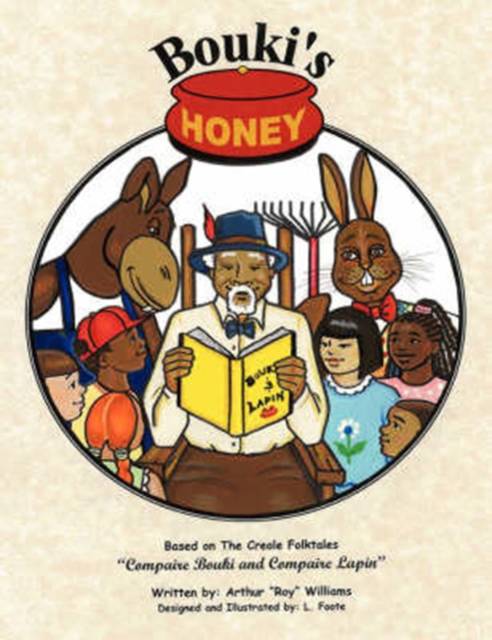
- Afhalen na 1 uur in een winkel met voorraad
- Gratis thuislevering in België vanaf € 30
- Ruim aanbod met 7 miljoen producten
- Afhalen na 1 uur in een winkel met voorraad
- Gratis thuislevering in België vanaf € 30
- Ruim aanbod met 7 miljoen producten
Zoeken
€ 20,95
+ 41 punten
Omschrijving
Come share in the rich, Creole Culture of Louisiana, cher! Learn (French Creole) and laugh -- with the humorous, Creole characters "Bouki and Lapin" "The Creole Folktales of Compaire Bouki and Compaire Lapin" have a rich and fascinating history, hundreds of years old. The tales originated from Senegal, Africa and according to the historical, Louisiana Creole Plantation 'Laura', they were first recorded in the United States - in Laura Plantation's 150-year-old cabins. Lapin's adventures ('Lapin' means "rabbit" in French) soon went on to become the popular American Tales known as 'Br'er (Brother) Rabbit' - only 'Compaire Bouki and Compaire Lapin' retain the original, unique French Creole 'flavor'. (In French folklore, 'compaire/compair' means brother.) In various Louisiana stories Bouki is pictured as a donkey, raccoon or wolf. You'll get to meet 'Bouki the donkey', in "Bouki's Honey". Bouki was a 'hyena' in the original African folktales. The name 'Bouki' is a 'wolof ' word - 'wolof ' being both the language and the people of Senegal, Africa - and is said to mean, "stupid hyena". Some even say 'Bouki' is a play on words meaning, "bookish" (something the character never is). It is believed that the Senegal slaves brought to Louisiana, actually told the African-based stories of 'Bouki and Lapin' as code, to illustrate victory over the conditions of slavery - with Lapin humorously outwitting plantation owner, 'Bouki'.
Specificaties
Betrokkenen
- Auteur(s):
- Illustrator(s):
- Uitgeverij:
Inhoud
- Aantal bladzijden:
- 30
- Taal:
- Engels
- Reeks:
Eigenschappen
- Productcode (EAN):
- 9781434304674
- Verschijningsdatum:
- 1/04/2008
- Uitvoering:
- Paperback
- Formaat:
- Trade paperback (VS)
- Afmetingen:
- 216 mm x 279 mm
- Gewicht:
- 122 g

Alleen bij Standaard Boekhandel
+ 41 punten op je klantenkaart van Standaard Boekhandel
Beoordelingen
We publiceren alleen reviews die voldoen aan de voorwaarden voor reviews. Bekijk onze voorwaarden voor reviews.











